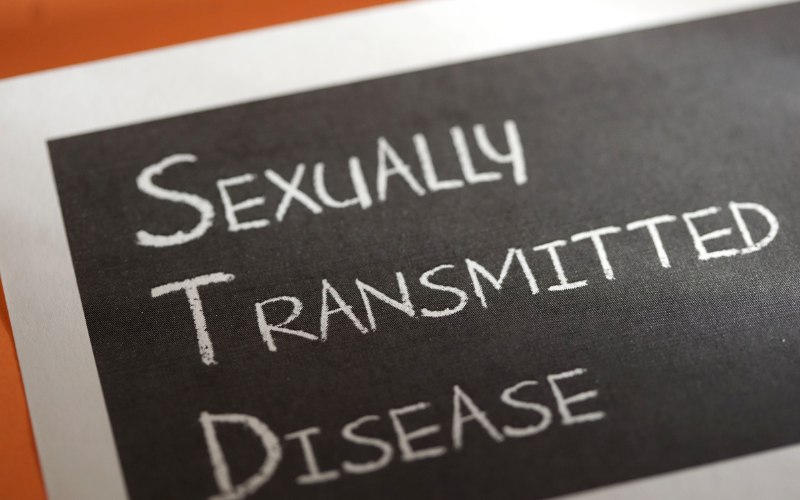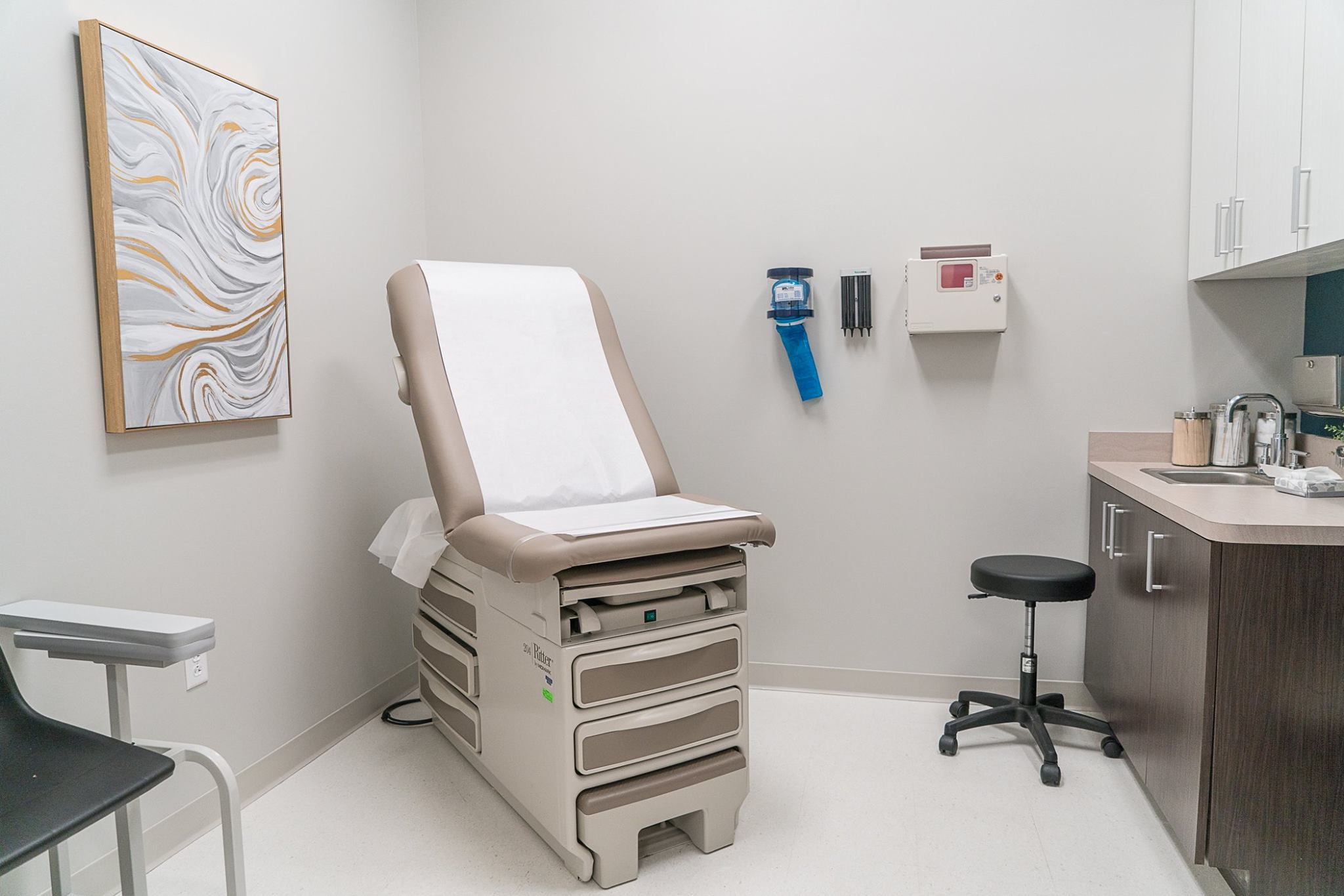Project Description
Discreet STD Testing at University Urgent Care.
Sexually transmitted diseases (STDs) are a prevalent concern in today’s world, and timely testing is crucial for both personal well-being and public health. University Urgent Care takes pride in providing discreet and efficient STD urine testing with results available within minutes. Learn more about STD’s, STD testing, the tests offered at our in-house laboratory.
STD TESTING OFFERED
CHLAMYDIA & GONORRHEA
CHLAMYDIA & GONORRHEA
These bacterial infections can affect various parts of the body and are often asymptomatic. Both can lead to serious health issues if left untreated, such as pelvic inflammatory disease and infertility. Chlamydia and Gonorrhea can be identified through specialized urine tests, offering it as a convenient and accurate diagnostic option.
TRICHOMONIASIS
TRICHOMONIASIS
This parasitic infection causes discomfort, itching, and discharge in women and can lead to complications during pregnancy. Trichomoniasis can be identified through specialized urine tests, offering it as a convenient and accurate diagnostic option.
BACTERIAL VAGINOSIS
BACTERIAL VAGINOSIS
An imbalance of vaginal bacteria can lead to bacterial vaginosis, causing discomfort and increased susceptibility to other infections. Bacterial Vaginosis can be identified through specialized urine tests, offering it as a convenient and accurate diagnostic option.
UREAPLASMA
UREAPLASMA
This bacterial infection can cause urinary and genital symptoms and may contribute to complications like infertility. Ureaplasma can be identified through specialized urine tests, offering it as a convenient and accurate diagnostic option.
YEAST INFECTIONS
YEAST INFECTIONS
Overgrowth of yeast can lead to itching, burning, and discharge, particularly in women. Although yeast infections are not considered STDs, they can sometimes be triggered or exacerbated by sexual activity, hormonal changes, or antibiotics. Yeast Infections can be identified through specialized urine tests, offering it as a convenient and accurate diagnostic option.
HERPES
HERPES
Herpes is a viral infection caused by the herpes simplex virus, often resulting in painful sores or blisters on the skin or mucous membranes. Herpes testing with a swab involves gently collecting a sample from a sore or blister to detect the presence of the herpes simplex virus, aiding in accurate diagnosis.
LEARN MORE ABOTU STD’S & TESTING
STD Overview:
What is an STD?
STDs are infections that spread through sexual contact. Early detection and treatment are essential to prevent complications, protect partners, and maintain overall health. Many individuals with STDs may not show symptoms, making regular testing an essential practice.

What is Gonorrhea?
Gonorrhea is a bacterial infection caused by Neisseria gonorrhoeae. It primarily affects the mucous membranes of the genital, rectal, and throat areas.
How Is Gonorrhea Spread? Unprotected vaginal, anal, or oral sex with an infected person can lead to transmission.
Symptoms of Gonorrhea: In many cases, gonorrhea shows no symptoms, earning it the label of a silent intruder. However, some individuals may experience painful urination, abnormal discharge, and pelvic pain.
Complications of Gonnorhea: If left untreated, gonorrhea can lead to serious health issues. In women, it might cause pelvic inflammatory disease, leading to chronic pelvic pain and potential infertility. In men, it can lead to epididymitis, a painful condition affecting the testicles.
Treatment for Gonorrhea: Gonorrhea can be diagnosed through testing, often involving a urine sample. It’s treatable with antibiotics, but it’s crucial to complete the entire prescribed course to ensure eradication and prevent antibiotic resistance.
Conclusion: Gonorrhea and chlamydia, while often silent in their approach, can have profound effects on your health if left untreated. Regular STD screenings are essential for early detection and treatment. University Urgent Care offers discreet testing for these and other common STDs, ensuring your sexual health remains a priority. Remember, timely treatment is your best defense against the potentially serious complications of these infections. Book an Appointment Today
What is Gonorrhea?
Chlamydia is another common bacterial infection, caused by Chlamydia trachomatis. It’s one of the most frequently reported STDs.
How Is Chlamydia Spread?
Like gonorrhea, chlamydia is spread through vaginal, anal, or oral sex with an infected person.
Symptoms of Chlamydia: Much like gonorrhea, chlamydia is often asymptomatic. However, it can cause pain during urination, abnormal discharge, and abdominal pain.
Complications of Chlamydia: Untreated chlamydia can lead to serious health problems. In women, it can cause pelvic inflammatory disease, leading to fertility issues. In men, it might lead to epididymitis and potential infertility.
Treatment for Gonorrhea:
Chlamydia can be diagnosed through testing, usually involving a urine sample or a swab. It’s also treated with antibiotics, and completing the full course is essential.
Conclusion: Gonorrhea and chlamydia, while often silent in their approach, can have profound effects on your health if left untreated. Regular STD screenings are essential for early detection and treatment. University Urgent Care offers discreet testing for these and other common STDs, ensuring your sexual health remains a priority. Remember, timely treatment is your best defense against the potentially serious complications of these infections. Book an Appointment Today
How Is Trichomoniasis Spread? Trichomoniasis is typically transmitted through sexual contact.
Symptoms of Trichomoniasis: Women may experience discomfort, itching, and a frothy discharge with an unpleasant odor. Men might have itching or irritation inside the penis. Pregnant women with trichomoniasis might be at risk for preterm birth.
Treatment for Trichomoniasis: A doctor can diagnose trichomoniasis and prescribe medication to treat it. It’s essential for both partners to get treated to prevent re-infection.
What Is Bacterial Vaginosis?
Bacterial vaginosis is an imbalance of vaginal bacteria.
What is Bacterial Vaginosis Caused By?
The exact cause isn’t clear, but it’s linked to an imbalance of bacteria in the vagina.
Symptoms of Bacterial Vaginosis:
Women may experience itching, burning, and a strong, fishy-smelling discharge. Bacterial vaginosis can increase the risk of other infections.
Treatment of Bacterial Vaginosis:
A doctor can diagnose bacterial vaginosis and prescribe antibiotics to restore the bacterial balance.
What is a Yeast Infection?
A yeast infection, also known as candidiasis, is not directly related to sexually transmitted diseases (STDs). It’s caused by an overgrowth of yeast, specifically the Candida species, in the vaginal area for women. Although yeast infections are not considered STDs, they can sometimes be triggered or exacerbated by sexual activity, hormonal changes, or antibiotics.
How Are Yeast Infections Triggered? Factors like hormonal changes, antibiotics, and weakened immune systems can trigger yeast overgrowth.
Symptoms of a Yeast Infection: Women may have itching, burning, and a thick, white discharge resembling cottage cheese.
Treatment of Yeast Infections: Over-the-counter or prescription antifungal medications can effectively treat yeast infections.
What Is Ureaplasma? Ureaplasma is a type of bacteria that can cause urinary and genital symptoms.
How Is Ureaplasma Spread? It’s usually sexually transmitted but can also be present without causing symptoms.
Symptoms of Ureaplasma: Some may experience discomfort while urinating, pelvic pain, or abnormal vaginal discharge.
Treatment for Ureaplasma: Ureaplasma infections can be diagnosed through testing and treated with antibiotics.
Remember, it’s crucial to practice safe sex and undergo regular screenings to detect and treat these infections early. If you suspect you have any of these conditions, seek medical advice for accurate diagnosis and appropriate treatment. Your sexual health is an important aspect of your overall well-being.
How Is erpes Spread? Herpes is highly contagious and primarily spreads through direct skin-to-skin contact with an active outbreak or asymptomatic shedding of the virus. It can also be transmitted through oral, vaginal, or anal sex, as well as by sharing personal items like utensils or towels.
Symptoms of Herpes: Symptoms of herpes can vary. Many people with HSV-1 or HSV-2 experience no symptoms or mild ones that go unnoticed. However, when symptoms do occur, they include painful sores or blisters in the affected area, flu-like symptoms, itching, and burning during urination.
Treatment of Herpes: While there is no cure for herpes, antiviral medications can help manage outbreaks, reduce symptoms, and decrease the frequency of recurrences. These medications can also reduce the risk of transmitting the virus to others. Proper hygiene, avoiding sexual activity during outbreaks, and using condoms consistently can help prevent transmission.
Coping and Prevention: Living with herpes can be emotionally challenging due to the stigma associated with the infection. Open communication with sexual partners, practicing safe sex, and seeking support from healthcare providers or support groups can aid in managing both physical and emotional aspects of herpes.
STD Testing At University Urgent Care
Efficiency and Privacy with In-House Laboratory: University Urgent Care offers a cutting-edge in-house laboratory that enables us to provide fast and confidential STD testing. This means you can receive results within minutes, allowing for timely medical decisions and peace of mind.
Discreet Testing for Comprehensive Coverage: Our discreet testing covers a range of common STDs, including gonorrhea, chlamydia, trichomoniasis, bacterial vaginosis, yeast infections, and ureaplasma. These tests are designed to detect infections even in the absence of symptoms, providing comprehensive coverage for sexual health concerns.






